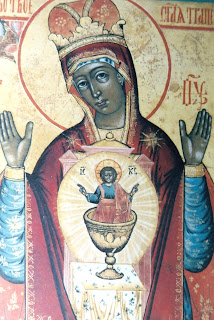Forgotten Byzantium
 From the corner of Armenia to the seas of Anatolia and North Africa, lied a massive stretch of Christian lands all tied under the city of Byzantium now modern-day Istanbul. Justinian chose to consolidate both western and eastern Christianity by naming Byzantium, 'Rum' or 'Rome'. He even went as far as to import the pope from Rome to the new empire, further illustrating his preference of the east to the lands of the west.
From the corner of Armenia to the seas of Anatolia and North Africa, lied a massive stretch of Christian lands all tied under the city of Byzantium now modern-day Istanbul. Justinian chose to consolidate both western and eastern Christianity by naming Byzantium, 'Rum' or 'Rome'. He even went as far as to import the pope from Rome to the new empire, further illustrating his preference of the east to the lands of the west.What makes this land so important was its strategic and geopolitical importance. To have Byzantium, was essentially to have the world. A land mass that brought the Eastern philosophies of India and China to the minds of Greek scholars and rulers. It was the summit of world trade, where Chinese silks would reach the hands of Greek merchants and hellenistic peoples. Where Islamic philosophers could learn the Greek classics and reintroduce Aristotilean 'logos' to the world.
This land, now our modern-day Middle East and Asia Minor otherwise known as Eurasia or the Caucasus, still exudes the historical Christian influences in a growing Islamic region. It would be wise to remember and preserve these Christian sites as more mosques span the globe. For example, Bethlehem, the birthplace of Jesus Christ, once boasted of its Christian majority. Now, only 3% of Christians reside in that territory and the number is continuing to dwindle. A poor economy, curfews, and the growing Islamic and Jewish fundamentalism in the region has propelled the Christians to seek solace and peace somewhere else.
This leads me, as a historian, to ask some crucial questions: What is to become of the Eastern Rite today in a growing Islamic world? What is to become of Bethlehem in the near future? Most importantly, what role will Byzantium play in this growing religious crisis?



Comments
Love,
Dad
I think your speedy and accurate responses to "Byzantium" has created a flare of reactive assurances that will re-verberate for days to come. The author is certainly quite efficient and very concerned about the World's carelessness to Christianity's doom in the area. Hello!, where are those commited "Christians"...
The Eastern Rite must stand up and demand funds from their own as well as the West in order to preserve and maintain sanctity of their Holy Sites. When I say "The West" I mean the Americas and Europe, or all those dedicated to Christianity's place in history.